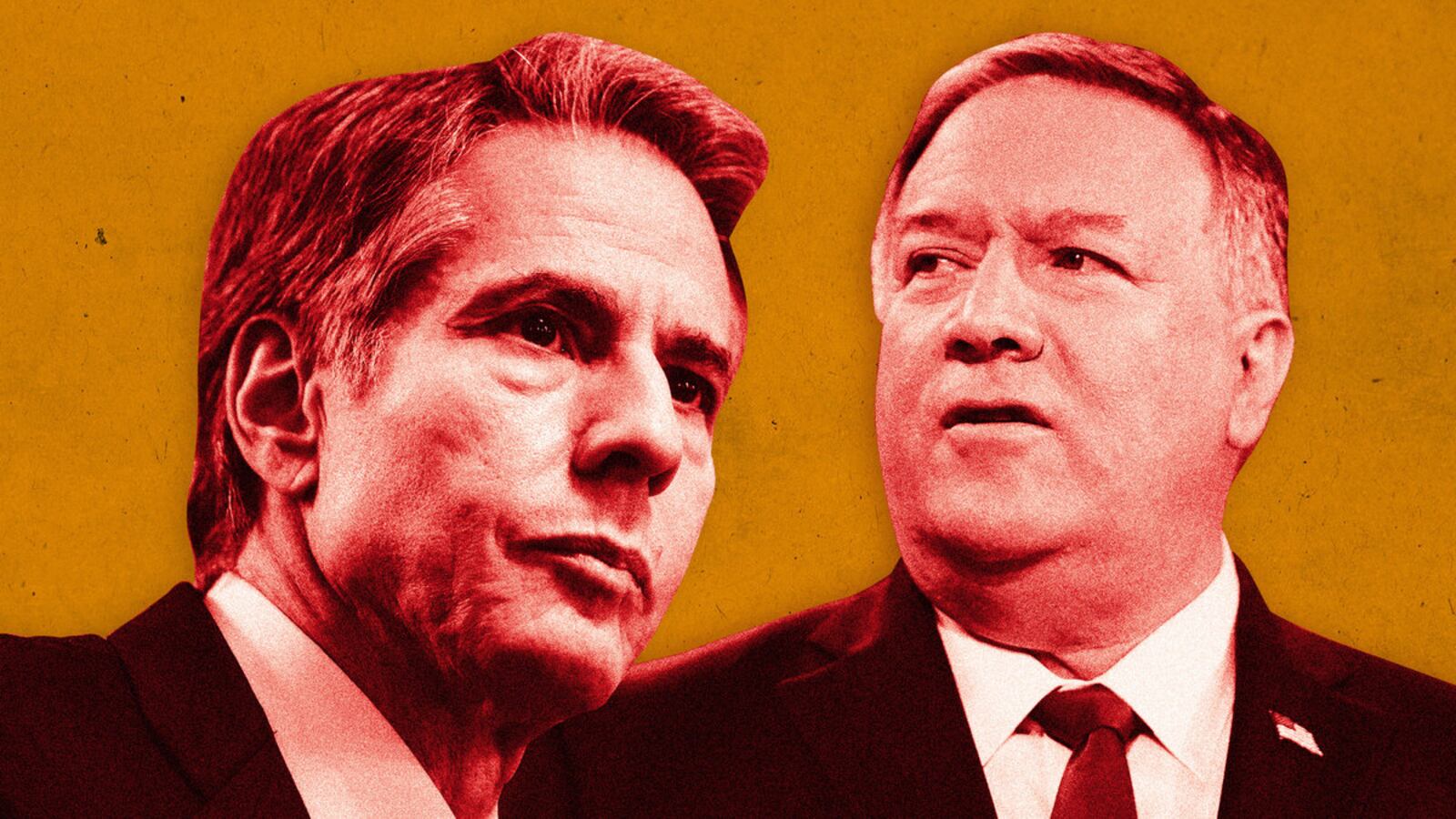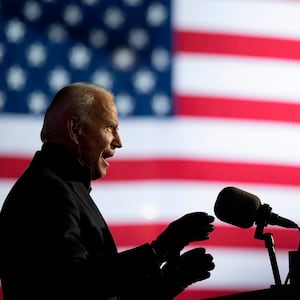The beat-down that Secretary of State Antony Blinken delivered this week to his predecessor Mike Pompeo was so severe that it might have to be included in next year’s State Department Human Rights report. As it happens, Blinken’s explicit and implicit critique of his predecessor came in conjunction with the release of this year’s edition of the State Department rundown of human rights abuses worldwide.
The report itself was largely compiled by the State Department in the last days of Pompeo’s tenure. But adjustments made by the Blinken team, the way Joe Biden’s secretary of state framed the actions and attitudes of Pompeo, and key steps taken to undo some of the damage done by Donald Trump’s chief diplomat were brutal in their directness. As it happens they were also warranted, delivered in a way that made it absolutely clear that American foreign policy was once again going to be guided by our national interests and shared values and not by the political ambitions of Pompeo or the extreme views of the right-wing evangelical faction to which he catered.
The Trump administration’s gross mishandling of issues associated with human rights both at home and abroad has become one of the worst stains on its record. At home, it systematically attacked freedom of speech and of the press and undermined the right to assemble and protest, as well as the right to vote and the right to equal protection under the law. There were numerous calls for Trump to be brought before the International Criminal Court to answer for human rights abuses against immigrants at our border. And of course, by the time Trump left office he had actually launched an all-out assault on democracy itself, the right of a people to self-determination that had been the reason the United States was founded in the first place.
Internationally, Trump celebrated and defended human rights violators like Saudi Crown Prince Mohammed bin Salman, Russian President Vladimir Putin, China’s Xi Jingping, North Korean dictator Kim Jong Un, Turkey’s Recep Tayyip Erdogan and many others. The Trump administration withdrew the U.S. from the U.N. Human Rights Council. It imposed asset freezes and other sanctions on prosecutors at the International Criminal Court (ICC)—a move that Richard Dicker, director of Human Rights Watch’s international justice programme, called “perverse” and which, he said, only “magnifies the failure of the U.S. to prosecute torture.”
In 2018, Pompeo’s State Department eliminated mentions from the human rights report of abuses associated with reproductive health. At the time, Planned Parenthood issued a statement saying, “By erasing reproductive rights from the State Department’s human rights report, the United States is demoting women’s rights to something less than human rights.”
Blinken reversed that move explicitly by stating that “women’s rights—including sexual and reproductive rights—are human rights.” He also instructed the department to identify violators and abuses going forward.
In addition, Blinken shut down a panel created by Pompeo called the Commission on Unalienable Rights. The initiative, regularly cited by Pompeo, cynically appeared to be prioritizing human rights while, in fact, its real work was to effectively establish a pecking order among rights, placing religious freedoms and property rights atop the list of those to be emphasized by the Trump administration. Pompeo argued the panel would return the country to “founding principles.” Critics saw it as both a ploy to roll back women’s rights and LGBTQ rights and to pander politically to the religious right. But they also saw it as posing other risks. For example, former Obama State Department official Rob Berschinski was quoted in The New York Times as saying that if the commission established a “hierarchy of rights” then “repressive governments are going to point to that fact and use it against (Trump) and future administrations to basically say, ‘we are no different than you. You have your priorities, we have ours, now butt out.”
Again, Blinken was explicit as he pulled the plug on Pompeo’s odious endeavor: “There is no hierarchy that makes some rights more important than others.”
In some areas, like China’s maltreatment of the Uyghurs, the Biden administration maintains the criticism that was heard from the Trump State Department. But Blinken also noted the U.S. would now actively track and challenge the abuses of countries outside their borders—which did not, as was plain to see in the Jamal Khashoggi case, take place under Trump.
The reversals by Blinken and the Biden administration are not limited to those that were made clear during this week’s release of the human rights report. In the very first days following Biden’s inauguration, the U.S. rejoined the U.N. Human Rights Council, the World Health Organization, and the Paris Climate Accord.
“Some have argued that it’s not worth it for the U.S. to speak up forcefully for human rights—or that we should highlight abuse only in select countries, and only in a way that directly advances our national interests. But those people miss the point. Standing up for human rights everywhere is in America’s interests,” Blinken said.
As he has regularly done since taking office, Blinken also directly acknowledged the work the U.S. has to do to live up to our own ideals. Again rejecting a Trump administration line, he acknowledged head-on systemic racism in the U.S., adding: “That’s what separates our democracy from autocracies: our ability and willingness to confront our own shortcomings out in the open.”
This shift may not be comfortable for some U.S. friends, like the governments in Egypt and India, or the Saudis who were called out in the State Department report alongside the Chinese, the Syrians, the Russians, and the military regime in Myanmar. But for the victims of human rights abuses worldwide, especially for those whose rights were devalued, ignored, or abused by Trump and Pompeo, the return of the world’s most powerful nation as an advocate on their behalf cannot be minimized.
And for Americans, it is another stark reminder of the damage done to our global standing and to individual lives worldwide by the cynically pandering performative politics of the previous U.S. administration.






